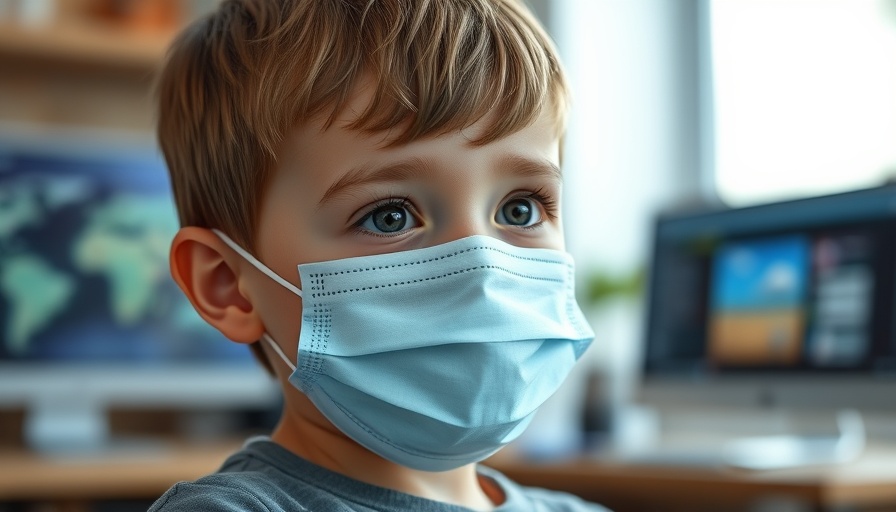
How the Pandemic Changed How Children Process Emotions
As we emerge from the pandemic, new research reveals significant changes in how children born or raised during this period respond to emotional cues. A recent study conducted by leading neuroscientists indicates that the brains of these 'pandemic-era children' exhibit altered responses when processing facial expressions compared to their peers from pre-pandemic times. This shift is crucial for parents to understand, as it may impact children's social interactions and emotional development.
Understanding the Impact of Mask-Wearing on Social Cues
One compelling aspect of the study highlights how prolonged mask-wearing during formative years may have hindered children's ability to accurately read emotions. For instance, children who relied on facial expressions to learn social skills often found those expressions obscured, thus complicating their understanding of non-verbal communication. This is especially concerning as accurate reading of social cues is foundational in developing healthy relationships.
Exploring Emotional Connections Through Technology
While technology has been a valued tool during the pandemic, it raises questions about its effectiveness in fostering genuine emotional connections. With more children engaged in online learning and social interactions through screens, the lack of physical presence and emotional context can further complicate their social skill development. Parents need to strike a balance, encouraging device-free activities that nurture face-to-face interactions.
Future Predictions: Emotional Skills Development
As we look ahead, it’s clear that returning to traditional settings—like schools and social gatherings—will be pivotal in re-establishing emotional learning. Educational programs emphasizing emotional intelligence can help bridge the gap created by pandemic disruptions. Experts suggest that schools should prioritize emotional and social learning to aid children in recalibrating their social development.
Practical Tips for Supporting Your Child's Emotional Development
Parents can play an integral role in helping their children adjust to these changes. Here are some actionable tips:
- Encourage Open Dialogue: Foster an environment where your child feels comfortable sharing their feelings and thoughts. Regular conversations about emotions can strengthen their emotional vocabulary.
- Model Emotional Intelligence: Show your child how to recognize and express their emotions effectively. Share your own feelings and discuss how you manage them.
- Engage in Social Activities: Organize playdates or group activities that allow your child to interact with peers, facilitating the practice of reading emotions and social cues more authentically.
Conclusion: Why Awareness is Crucial
Ultimately, as parents, being aware of these changes can empower us to provide the necessary support our children need during this transitional period. By creating emotionally rich environments and encouraging social connections, we can help our children flourish despite the profound changes they have faced. Stay informed and actively engage in your child's emotional growth to assist them in navigating a world that is learning to express emotions again.
Now is the time for families to come together—let’s prioritize emotional development for our children and ensure they embrace their feelings fully in a safe, understanding environment.
 Add Row
Add Row  Add
Add 




 Add Row
Add Row  Add
Add 

Write A Comment